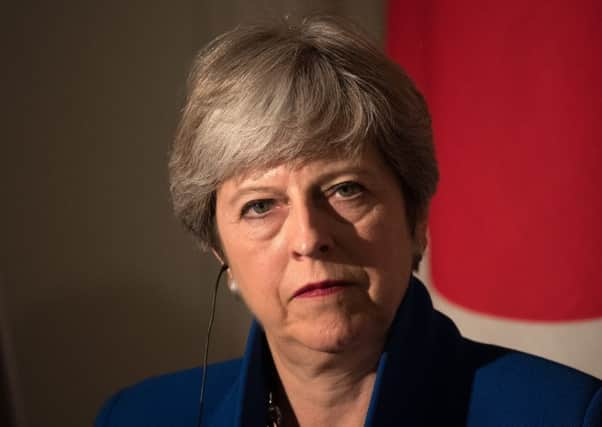Uncertain post-Brexit fortunes of British businesses
This article contains affiliate links. We may earn a small commission on items purchased through this article, but that does not affect our editorial judgement.


After a gruelling six weeks of political campaigning, the 2017 general election delivered one of the most unexpected election results in recent history.
Theresa May’s gamble to secure a majority in the House of Commons backfired, resulting in the formation of a minority government charged with leading negotiations with the EU and forging the foundations of the UK’s post-Brexit future.
• READ MORE: Markets and economy news
Advertisement
Hide AdAdvertisement
Hide AdFar from the strengthened majority initially anticipated, the Conservative Party’s authority to govern rested on a confidence and supply agreement with Northern Ireland’s Democratic Unionist Party (DUP).
By stark contrast with her previously single-handed approach, the Prime Minister decided to reach out to the Labour, Liberal Democrat and Scottish National parties for both ideas and support during the Brexit negotiation process.
Now over a year since the EU referendum, the UK’s political landscape has shifted beyond recognition, and there’s no telling what lies ahead. The Conservative Party’s agreement with the DUP was the subject of legal action by the Scottish and Welsh devolved governments, and a transitional Brexit agreement with the EU now appears to be Cabinet orthodoxy – so investors shouldn’t expect much in the way of clarity any time soon.
To gauge how investors across the UK are reacting to what has been a year of extraordinary political events, Asset Match recently surveyed a nationally representative sample of 1,100 UK investors. The company, which offers liquidity in unquoted firms, said the research revealed that while 57 per cent of investors believe Brexit will provide new opportunities for UK companies to expand their global presence, a further 59 per cent lack faith in the minority government’s ability to help businesses reach their full growth potential.
These results reaffirm the need for the government to renew its commitment to the country’s scaling SMEs. After the Spring Budget delivered a handful of SME-focused policies, businesses across the country now expect more from the government ahead of Brexit.
For Britain to seize the wealth of opportunities that exist globally, whatever the final outcome of the Brexit negotiations, the country’s SMEs will be of vital significance. Representing 99.9 per cent of UK businesses, and responsible for 67 per cent of private sector employment, SMEs have proven to be vital engines of job creation, economic turnover and GDP growth.
However you voted in last year’s EU referendum, it is now increasingly clear that a number of significant opportunities will arise for SMEs over the coming years, ranging from enhanced access to investment and new export opportunities, which cannot be ignored.
Advertisement
Hide AdAdvertisement
Hide AdThe government has announced a series of measures in an effort to support scaling SMEs – among these plans to increase support for key infrastructure projects across the country to help boost productivity. While these are welcoming steps forward, Asset Match’s research revealed that 59 per cent of investors are concerned about the ability of these measures to support the long-term growth of UK scale-ups. For the country to reap the full benefits of the scale-up companies, policy solutions to break the barriers hampering SME growth must take centre-stage and not fall by the wayside of Brexit debate.
In advance of the general election, the Conservatives’ transformative set of initiatives was launched, with the expressed intent of supporting scale-up companies.
At the heart of industrial strategy was a commitment to reviewing companies’ access to growth finance in addition to a whole host of potential policies harnessing the growth prospects of SMEs in leading urban cities and regional centres.
With Britain’s vast pool of successful start-up companies now reaching maturity, it is imperative that a cross-party consensus is formed that champions the full potential of the UK’s scaling business, supported by a series of targeted proposals to further support their growth into full-fledged scale-ups.
With the weakened government now leading Brexit negotiations, it is incumbent upon all political parties to take responsibility for supporting entrepreneurs across the UK to expand their operations, export into new markets and provide a vital boost to the nation’s labour force and GDP at this vital moment in our collective history.
If sufficient support is provided to the nation’s growing SMEs, the Scale-Up Institute estimates that the UK economy could benefit from £225 billion in additional GVA and 150,000 net new jobs over the next 20 years. Investors are evidently confident in the long-term growth prospects of our businesses, and the government must also play its part to ensure UK SMEs can reach their full growth potential.